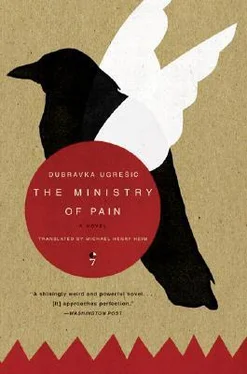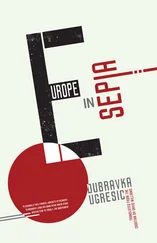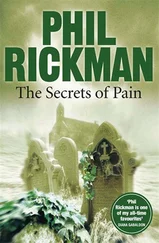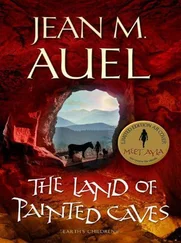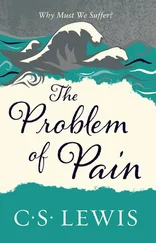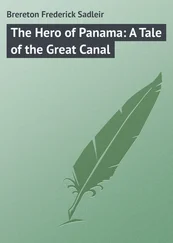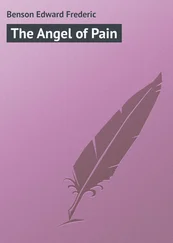mate goal and jargon like the contemporary self, the bastardization of our age, postcolonialism, marketization, recruiting tactics, sensitivity training , and contacts .
But on their way they will forget that the very flexibility, mobility, and fluidity that catapulted them to the surface leave a nameless mass of slaves down below. All through the gray backwaters people will be eking out precarious livings by manufacturing the goods the West European magnates call for. They will be rummaging in dustbins for food, going on benders, giving birth to homeless children who will give birth to more homeless children. They will sell their sperm, their kidneys; they will sell any organ that will fetch a price on the global black market. They will rent out fresh East European sexual organs to the weary ones of Enlarged Europe. They may also help out their brothers, lay Croatian customers, say, traveling to Bulgaria (where human flesh is cheaper). And some of them will travel all the way to the shores of Western Europe, where the more fortunate will pick asparagus in Germany and tulips in Holland and the less fortunate will scrub toilets.
My students appear to have missed the boat, as have I, for that matter, but only by a second. We stood there with our mouths open for a second too long and missed our chance to enter the new age. All we can do now is run our legs off to keep in place. The loser bug has made its way into our hearts and weakened the muscles there.
I was sitting in the room surrounded by peeling walls and the smell of old dust. It suited me just fine: it belonged to somebody else and went well with my newly acquired low-life visa and several pieces of luggage I might just as well have left to rot in a public locker somewhere. If I had done so and if the authorities had traced the luggage to me, I would have been hard put to tell them what was in it. The contents were untranslatable. So there I sat surrounded by peeling walls with a profession that was likewise untranslatable and a country that had come apart at the seams and a native language that had turned into three languages like a dragon with a forked tongue. I sat there with a feeling of guilt whose source I couldn’t put my finger on and a feeling of pain whose source I couldn’t put my finger on.
I pressed “off” and “eject” on the remote, took the cassette out of the VCR, and put it back neatly on the shelf. I decided that my best option was to go on staking out my territory, set up a day-to-day routine, get things done. Tomorrow, I thought, I’d start by picking up a newspaper to check on the date (I wasn’t sure just how much time I’d spent in the cell I’d locked myself up in) and locating the nearest launderette. Then I had to clean up the rest of the mess and buy new wallpaper for the places where it had buckled and come off. But first I’d need to get rid of the ugly stains on the walls. This time I’d sand the walls and fill the cracks with putty before hanging the wallpaper. I might even just paint it — white, of course.
I went over to the window and opened it. The concrete square was lit by the pale glow of the streetlamps and the bright letters of the BASIS sign on the other side. There was a hot, heavy, subtropical humidity in the air. All the way to the right I could see a piece of the turquoise dome atop the small concrete mosque. The crowns of the chestnut trees had a muted luminosity of their own, and the metal satellite dishes on the nearby balconies shone white through the darkness. It was unusually quiet. I was soothed by the sight. Perhaps I had come home after all, I thought.
And then out of the darkness into the semidarkness of the concrete there emerged the figure of a man. He made his way slowly and with difficulty, as if wading through the ocean. Suddenly he flicked something that looked like a cigarette butt to the ground, and there was a sharp retort. It was a firecracker. Not realizing that he was being observed, the passing stranger had left his mark upon the night: he had sent a message with no content only to vanish into the dark. As he disappeared, he seemed to be walking at a slight angle, like a dog.
The cyclone had set the house down, very gently — for a cyclone — in the midst of a country of marvelous beauty. There were lovely patches of green sward all about, with stately trees bearing rich and luscious fruits. Banks of gorgeous flowers were on every hand, and birds with rare and brilliant plumage sang and fluttered in the trees and bushes. A little way off was a small brook, rushing and sparkling along between green banks, and murmuring in a voice very grateful to a little girl who had lived so long in the dry, gray prairies.
L. Frank Baum, The Wonderful Wizard of Oz
I left the flatand headed toward the metro station. I was almost there when I felt a blow on my back, a blow so powerful and unexpected that it knocked the breath out of me. A second or two later I felt a determined tug at my bag, which was hanging from my shoulder. My shoulder blade kept the strap from slipping off, and I turned, pulling back the bag, to see three small boys with satchels on their backs. They were coming home from school. They could not have been more than ten. One of them, I saw, had a toy pocketknife in his hand. He lowered his eyes and dropped it. All three had the dark, sullen look of grown men. I can’t tell how long we all stood there motionless. Two or three seconds at most. Clearly none of us knew how to deal with the situation. But then the strongest of the three took over and, opening his mouth wide and aiming his black pupils at my face, he let out a long, piercing cry full of hate. The hate was as unexpected and powerful as an electric shock. It came from some unknown depths, some unknown darkness; it came from light-years away to crash before me, bare and sharp as a knife and completely divorced from the situation and the boy, whose lungs, throat, and mouth served merely as a chance medium.
The boys turned and fled. They had an awkward, childlike, flat-footed way of running, and their satchels bounced up and down on their backs. Once they felt they were at a safe distance, they stopped and turned. The sight of me still standing there rooted to the spot and staring after them elicited several mocking gestures on their part, after which they burst into high-pitched giggles. Their first attempt at theft may have been a failure, but this part was great fun. I stood there watching them until they moved on.
I opened my hand to find I was holding the knife. I couldn’t remember having bent to pick it up. Staring at it, I realized the incident that had just played itself out was both moving and dreadful. The boy’s hate-driven scream still echoed in my ears.
It was late afternoon. The dusk was magnificent, the sun pouring its warm terra-cotta glow over everything. The pain had subsided, and I set off, still clutching the knife, but no longer clear as to where I was headed. I used deep breathing to suppress the incident, which could have happened to anybody, in any part of the city, anywhere. I thought of myself living in the largest dollhouse in the world, where everything is simulation, nothing is real. And if nothing is real, then there’s nothing to be afraid of, I thought, and felt a certain spring come into my step. It was almost as if I were walking on air.
Madurodam unraveled before me like a skein of wool. I couldn’t get over the fact that everything looked new: the bonsai imitating mighty oaks, the patches of grass imitating luxuriant lawns. Everything was suddenly clear as crystal, plain as the nose on my face. The Madurodamplein was rice-paper thin. A bluish horizon glowed in the distance. Looked at thus, the heart of Amsterdam had the form of a partially bisected cobweb. First came Magere Brug, whose filigree made me think of a dragonfly, then the De Waag Chinese fish market with its wriggling catch, then the Waterlooplein flea market. The scenes flashed by before me, fragile, lacelike, limpid like the caps on the girls’ heads in the painting by Nicolaas van der Waay. I saw canals overhung with shady trees; I saw the façades of the houses along the canals — the Herengracht, the Keizersgracht, the Prinsengracht, and Singel in neat rows like pearls; I saw Mint Tower, the flower market, and Artis and took in the heavy, warm, intoxicating sight of the Botanical Museum. The entire city lay before me, a city of sky, glass, and water. And it was my home.
Читать дальше
